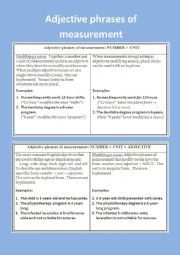
|
Adjectives of measure, nouns as adjectives
This is a guide to using nouns as modifiers in expressions of measure. For example: 3 years old, 3-year old child
Level: advanced
Age: 14-17
Type: grammar-guide
Downloads: 16
|
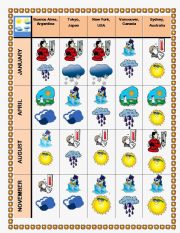
|
Speaking about weather around the world 1
Delete pictures so that each student in the class has a different weather chart that is missing 5 blocks of temperature and weather and 2 blocks with just the temperature missing.
Alternatively download the other parts to this activity which have gaps for students to fill in.
Students should fill in the missing information in their charts b...
Level: elementary
Age: 8-17
Type: activity-card
Downloads: 36
|
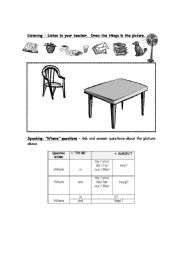
|
Picture dictation and preposition practice.
Students have to draw items on a picture according to the teacher´┐Żs dication. As a follow-up students can ask and answer questions about the picture or prepare their own picture dictation. The second page highlights the differences between "in" and "at" prepositions of location.
Level: elementary
Age: 7-17
Type: worksheet
Downloads: 6
|
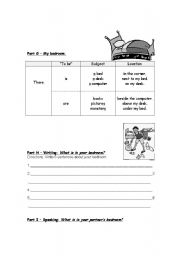
|
describing location using there is/are
describing your bedroom
Level: elementary
Age: 11-17
Type: worksheet
Downloads: 4
|
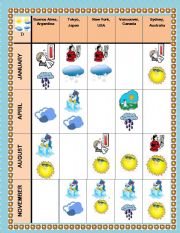
|
Speaking about weather around the world 3
Each student in the class has a different weather chart that is missing 5 blocks of temperature and weather and 2 blocks with just the temperature missing.
Students should fill in the missing information in their charts by asking various classmates about the weather in the cities mentioned.
Level: elementary
Age: 8-17
Type: activity-card
Downloads: 18
|
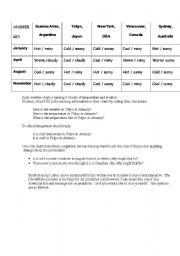
|
What is the weather like in Tokyo in spring? It is warm and rainy.
This is a class activity, but it can be a class, group or pair activity if adapted. Each student gets a different chart with the info on the weather in different places. Some information is missing and they must ask other students in the class for that information to complete the chart.
It is better if done with pictures in place of words bu...
Level: elementary
Age: 10-17
Type: activity-card
Downloads: 11
|
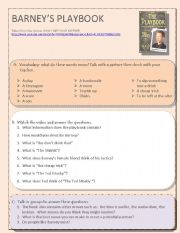
|
video listening - Barney´┐Żs Playbook
A listening based on a clip from how I met your mother (youtube link included). Students clarify vocabulary, listen / watch and answer comprehension questions, then discuss a few questions with a partner related to the topic.
Level: advanced
Age: 14-17
Type: worksheet
Downloads: 15
|
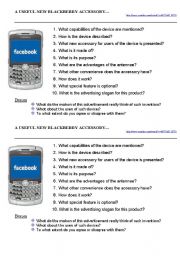
|
The Blackberry Helmet
A funny listening practice based on Rick Merer´┐Żs Blackberry helmet parody on the topic of addiction to our technology. You tube link is included.
Level: advanced
Age: 14-17
Type: others
Downloads: 40
|
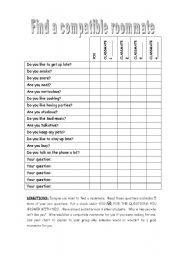
|
roommate compatibility interview
a controlled speaking activity where students have the task of finding a compatible roommate among their classmates by asking a few simple present questions
Level: elementary
Age: 14-17
Type: others
Downloads: 44
|
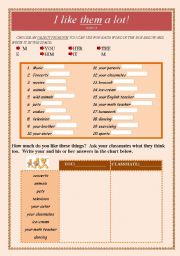
|
Object pronouns with the verb LIKE
Students first write the corresponding object pronoun in the blanks. Then paractice speaking by asking a partner if they like the items on the list, and noting down the response. The list of items is different for Student A and Student B. This could be followed up by asking students to report their findings to the class and thus getting speaking...
Level: elementary
Age: 10-17
Type: activity-card
Downloads: 6
|